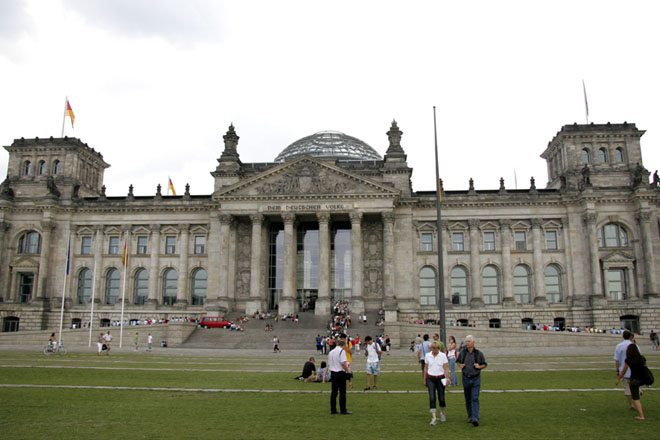Details were added after the third paragraph (the first version was posted at 17:32)
Azerbaijan, Baku, Feb. 24 / Trend S.Aghayeva /
The German Bundestag has adopted a document on the Khojaly genocide and the Nagorno-Karabakh conflict.
The Standing Committee on Petitions has adopted a document on the genocide and the Nagorno-Karabakh conflict on the eve of the 20th anniversary of the Khojaly genocide, the Azerbaijani Foreign Ministry said on Friday.
The document notes the importance of recognizing bloody acts committed by the Armenian armed forces against civilians in the Azerbaijani town of Khojaly on February 26, 1992 as massacre.
The Armenian military forces committed genocide in Khojaly on Feb. 26, 1992. Some 613 people were killed, including 63 children, 106 women and 70 old men. A total of 1,000 civilians were disabled during the genocide. Eight families were annihilated, 130 children lost one parent, and 25 lost both. Additionally, 1,275 peaceful residents were taken hostage, while the fate of 150 remains unknown.
The document, adopted by the Bundestag, called on Armenia, which alleges the perpetration of the Armenian genocide, to treat with understanding to this issue of the Azerbaijani people.
Lasting peace in the region can only be achieved on the basis of historical truth, the document says.
The paper also says about importance of solving the Armenian-Azerbaijani conflict over Nagorno-Karabakh, notes need in the withdrawal of Armenian forces, first of all, from five occupied regions of Azerbaijan and the return of IDPs to their homes.
Bundestag states that the first step in resolving the conflict should be the application of international law and the return of IDPs to their land.
Bundestag calls upon the German authorities to contribute to the solution of the conflict.
The conflict between the two South Caucasus countries began in 1988 when Armenia made territorial claims against Azerbaijan. Armenian armed forces have occupied 20 per cent of Azerbaijan since 1992, including the Nagorno-Karabakh region and seven surrounding districts.
Azerbaijan and Armenia signed a ceasefire agreement in 1994. The co-chairs of the OSCE Minsk Group - Russia, France and the U.S. - are currently holding peace negotiations.
Armenia has not yet implemented the U.N. Security Council's four resolutions on the liberation of the Nagorno-Karabakh and the surrounding regions.






